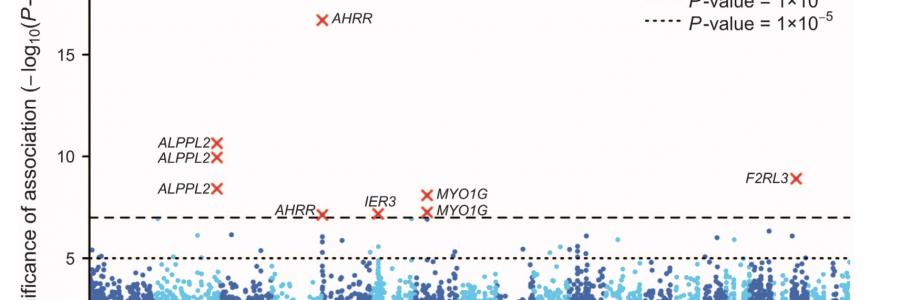
PhD student Richard Karlsson Linnér from CTGlab publishes in Molecular Psychiatry
Epigenetic changes—such as CpG methylation—are associated with disease status, health outcomes, and mortality. It has been hypothesized that even the social environment could have strong long-lasting effects on methylation, and in turn on health. One of the largest epigenome-wide association studies (EWAS) to date casts doubt on that hypothesis. An epigenome-wide association study meta-analysis of educational attainment” was published in Molecular Psychiatry October 31, 2017, and it was performed by CNCR/CTG PhD student Richard Karlsson Linnér.
The study included 10,767 individuals from 27 cohort studies, and it investigated the possible association between individual differences in methylation and educational attainment. It is the largest EWAS to date on a socioeconomic factor, and one of the largest overall. Educational attainment is a major life-shaping experience, that takes place over many years, and if the social environment would have effects on methylation we would expect to find it by studying this variable. By using a sample that is many times larger than previous studies on the relation between a socioeconomic variable and methylation, the estimates can serve as an upper bound on what can be expected by a biologically distal environmental factor. They find that the effects of education are much smaller than those of the biologically proximate environmental factors alcohol consumption, BMI, smoking, and maternal smoking. Extensive robustness analyses show that maternal smoking remains a troubling, uncontrolled-for factor in EWAS studies on socioeconomic variables. The researchers give recommendations on how to design future EWAS studies to avoid confounding that can be expected because of life-style factors with strong effects on methylation.
The study was supervised by Prof. Dr Philipp Koellinger, and co-authored by CNCR/CTG PhD student Kyoko Watanabe, and Prof. Dr. Danielle Posthuma.
Read the full article in Molecular Psychiatry